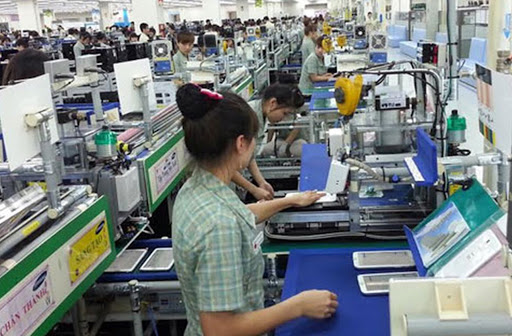The loose links between small and medium-sized enterprises (SMEs) with big firms and between Vietnamese and FDI firms remain a problem in FDI attraction.

Local producers must prepare to meet the requirements of foreign direct investment (FDI) companies to participate in the global supply chains, a top official has said.
The world was seeing an increasing wave of investment capital shift, bringing significant opportunities for Viet Nam to attract the FDI flow, Minister of Planning and Investment Nguyen Chi Dung said. However, the participation of Vietnamese producers in the global value chains remained modest, Dung said according to Vietnam News Agency.
The loose links between small and medium-sized enterprises (SMEs) with big firms and between Vietnamese and FDI firms remained a problem in FDI attraction, he added.
Little improvement has been seen in the participation of local producers in the global supply chains of FDI companies in recent years.
The participation of Vietnamese suppliers in Canon’s supply chain did not see any considerable changes in the past few years although the company’s local procurement rate increased to 65 per cent, said Dao Thi Thu Huyen, senior manager at Canon Viet Nam.
She said that the multinational company had 340 suppliers globally, 147 of which were in Viet Nam but only 20 suppliers were 100 per cent Vietnamese.
Canon has a list of components for being localised in Viet Nam and the company was seeking new suppliers, she said.
Nguyen Anh Tuan from Samsung Viet Nam said changing production lines and technologies was the biggest challenge for Vietnamese manufacturers. It was critical for local producers to improve their production capacity and meet the requirements of FDI companies to participate in global value chains, he said.
According to Duong Lien, Deputy Director of the USAID Linkages of Small and Medium Enterprises (LinkSME), Vietnamese firms had not made adequate preparations to meet the needs of FDI firms. A major problem was Viet Nam was still heavily dependent on raw materials from China.
For example, the garment and textile industry must import 70-80 per cent of raw materials from China, the electronic industry about 77 per cent of the total product value, the pharmaceutical industry 85-90 per cent and the plastic industry around 70-80 per cent of the production cost.
Dung pointed out two major reasons for the modest participation of Vietnamese firms in the global production network. The first was FDI companies often had a close supply network which was difficult for Vietnamese firms to join. The second was the limited capacity of local producers to meet the strict requirements of FDI firms.
“Sometimes, local producers are still hesitant and do not dare to invest in breakthrough developments,” Dung said.
Dung said that to capture opportunities from the wave of investment, Viet Nam needed to prepare clean land at industrial zones and economic zones with developed technical infrastructure system together with favourable land policies, an improved investment climate and quality human resources.
“The process will require the close co-ordination among the Government, ministries, localities and industries in determining priority policies and improving the business climate and promoting the roles of enterprises in enhancing links,” Dung said.
According to Tuan, sometimes Vietnamese firms required FDI companies to promise orders first then they would invest in production to meet FDI companies’ requirements. This was not the best way forward, Tuan said, adding that improving capacity was of critical importance because only with adequate capacity could firms seek many other partners.
The COVID-19 pandemic was generating new business models, bringing opportunities for the establishment of new value chains and it was time for Vietnamese firms to improve their capacity, Hoang Thu Thuy from Panasonic Viet Nam said. — VNS




